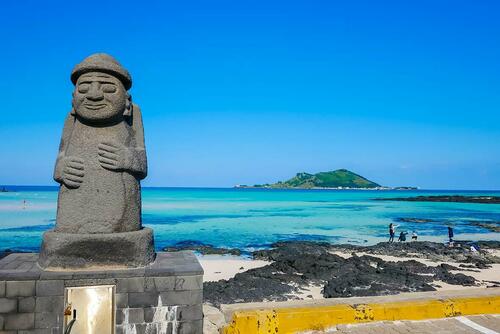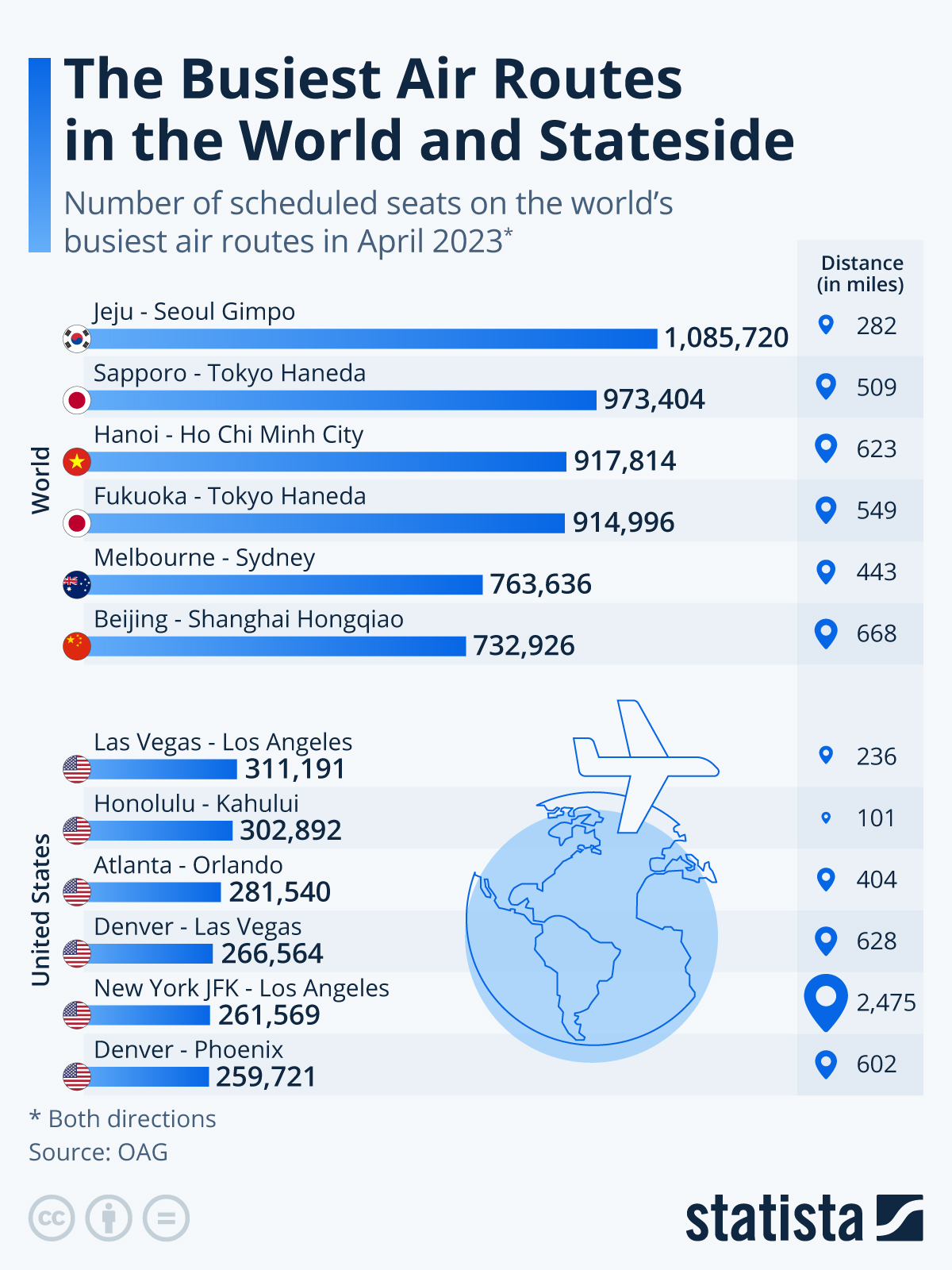
The busiest air routes in the world are all domestic flights. Yet, the frequent flyer nation of the United States can't hold the candle to the high demand for air travel in Asia.
There, the busiest route has the capacity to transport more than three times as many people in a month than the busiest U.S. route.
Data published for the month of April by air travel analytics firm OAG shows that the route connecting Gimpo airport in the South Korean capital of Seoul and country's Jeju island is the world's busiest.
The "Hawaii of South Korea" is popular among domestic tourists.
You will find more infographics at Statista
Among the world's and the U.S.' most flown routes, tourism and entertainment destinations pop up repeatedly, while island locations also have a leg up.
This includes the world's second-busiest route between Tokyo and Japan's Northern island of Hokkaido, a year-round tourist destination.
In the U.S., the two most-flown routes connect Los Angeles and Las Vegas as well as two Hawaiian islands.
Some island routes have also popularized short flights as ground transportation is either not an option or is the more complicated, time-consuming and expensive choice. While the inter-Hawaiian route is the briefest in the ranking, the world's busiest leg between Seoul and Jeju island is the third-shortest. The flight route linking the United States' biggest cities across a distance of almost 2,500 miles is an outlier in that sense. As the most popular air routes over land are typically 400-700 miles long, the inclusion of the JFK-LAX route does highlight the extraordinary reliance the U.S. places on air travel to keep the country connected.
International flights are a more pricy and sometimes more complicated way to travel and therefore attract fewer passengers.
The busiest route this April is connecting Egyptian capital Cairo with Jeddah in Saudi Arabia, the gateway to Muslim pilgrimage place Mecca.
This month (which falls into Hajj season) almost 450,000 people will be flying on the route - still more than on the busiest U.S. journey.
The busiest air routes in the world are all domestic flights. Yet, the frequent flyer nation of the United States can’t hold the candle to the high demand for air travel in Asia.
There, the busiest route has the capacity to transport more than three times as many people in a month than the busiest U.S. route.
Data published for the month of April by air travel analytics firm OAG shows that the route connecting Gimpo airport in the South Korean capital of Seoul and country’s Jeju island is the world’s busiest.
The “Hawaii of South Korea” is popular among domestic tourists.
You will find more infographics at Statista
Among the world’s and the U.S.’ most flown routes, tourism and entertainment destinations pop up repeatedly, while island locations also have a leg up.
This includes the world’s second-busiest route between Tokyo and Japan’s Northern island of Hokkaido, a year-round tourist destination.
In the U.S., the two most-flown routes connect Los Angeles and Las Vegas as well as two Hawaiian islands.
Some island routes have also popularized short flights as ground transportation is either not an option or is the more complicated, time-consuming and expensive choice. While the inter-Hawaiian route is the briefest in the ranking, the world’s busiest leg between Seoul and Jeju island is the third-shortest. The flight route linking the United States’ biggest cities across a distance of almost 2,500 miles is an outlier in that sense. As the most popular air routes over land are typically 400-700 miles long, the inclusion of the JFK-LAX route does highlight the extraordinary reliance the U.S. places on air travel to keep the country connected.
International flights are a more pricy and sometimes more complicated way to travel and therefore attract fewer passengers.
The busiest route this April is connecting Egyptian capital Cairo with Jeddah in Saudi Arabia, the gateway to Muslim pilgrimage place Mecca.
This month (which falls into Hajj season) almost 450,000 people will be flying on the route – still more than on the busiest U.S. journey.
Loading…






